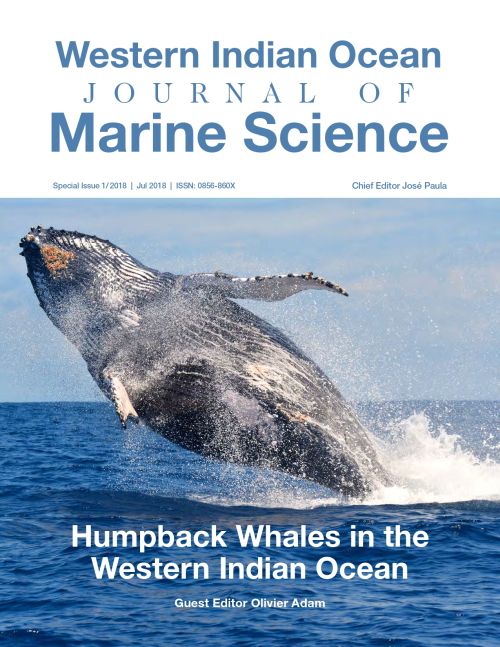Main Article Content
From universal to local law: prospects for the protection of whales in the western Indian Ocean through the Whale Route project
Abstract
Whales are highly mobile animals, travelling long distances between breeding and feeding sites. They do not confine themselves to a specific area, crossing the waters and jurisdictions of multiple nations as well as areas beyond national jurisdiction. As a result, the conservation and management of these marine species is very challenging, requiring inter-institutional coordination, international and regional agreements. As an emblematic migratory species, whales are the subject of many international agreements, with a universal vocation, dedicated to their conservation and management. These include the Convention on International Trade in Endangered Species, and importantly, the International Convention for the Regulation of Whaling. A sanctuary was established in 1979 by the International Whaling Commission in the western Indian Ocean to implement and reinforce this latter universal convention at the regional level. However, these legal instruments do not guarantee the full protection of whales and their habitats from direct and indirect impacts of human activities such as pollution, ship strikes, overfishing, entanglement in fishing gear, disturbance, or even climate change. Consequently, a project for humpback whales, the whale route has emerged in the western Indian Ocean. This project is intended to protect humpback whales from many anthropogenic disturbances, to encourage their conservation, and to raise environmental awareness through sustainable tourism and outreach activities. The project requires the establishment of a road map to obtain the best possible marine protected areas for cetaceans through appropriate regional cooperation and governance arrangements in the western Indian Ocean. Indeed, because of the migratory pattern of whales, it is necessary to coordinate initiatives between many stakeholders such as States and Territories in this region, and also international organizations, transnational networks, public and private actors. This article aims to analyse the challenges and prospects of a regional protected area to contribute to the conservation of humpback whales. It also highlights the cooperation and the coordination required in the western Indian Ocean to resolve governance issues.




